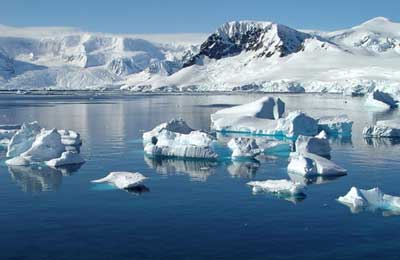
Qatar mulls Kyoto extension to break deadlock
Doha, December 8, 2012
Qatar proposed keeping an existing UN plan for fighting climate change in place until 2020 on Saturday in an attempt to break a deadlock at talks over a new deal to curb world greenhouse gas emissions.
The Opec nation hosting the negotiations among almost 200 countries also suggested putting off until 2013 a dispute about demands from developing nations for more cash to help them cope with global warming.
The UN's 1997 Kyoto Protocol will expire by the end of the year if it is not extended and has already been weakened by withdrawals of Russia, Japan and Canada. Its backers, led by the European Union and Australia, account for just 15 percent of world greenhouse gas emissions.
Expiry of Kyoto would leave the world with no legally binding deal to confront global warming, merely a patchwork of national laws to rein in rising carbon emissions.
The draft deal would extend the pact, which had obliged about 35 industrialised nations to cut greenhouse gas emissions by an average of at least 5.2 percent below 1990 levels during the period from 2008 to 2012.
The two-week UN meeting in the Qatari capital had been due to end on Friday but the talks went on through the night in an attempt to avert failure.
"I believe this is a package we can all live with," conference president Abdullah bin Hamad Al-Attiyah said as he presented the Qatari proposal to help combat floods, droughts, heat waves and rising sea levels.
The proposal would keep alive hopes for a new, global UN deal to fight climate change meant to be agreed by 2015 and enter into force by 2020 after successive failed attempts.
The 2015 deal would set goals for all nations, including emerging economies led by China and India that have no targets under Kyoto.
Qatar proposes that parties to Kyoto would have to revisit their targets for cuts in greenhouse gas emissions by 2014, perhaps to make tougher goals, a concession to developing nations that had wanted Kyoto extended by only five years.
In a blow to the demands of developing nations for a clear timetable for a promised tenfold increase in aid to $100 billion a year by 2020, the draft deal merely agreed to "extend the work programme ... for one year to the end of 2013."
The United States, Europe and other developed nations, facing an economic slowdown at home, have refused to set a timetable for a rise in aid.
The document also outlined possible ways to meet developing nations' demands for a new mechanism, including insurance, to help them confront losses and damage caused by rising sea levels or storms linked to climate change.
"On balance it seems to be fair," Brazil's Luiz Alberto Figueiredo said of the package. "I think everybody won. It's another step in this long fight against climate change."
World carbon dioxide emissions are set to rise by 2.6 percent this year, and are more than 50 percent higher than in 1990. Recent growth has come mostly from emerging nations, led by China and India.
The United States never ratified Kyoto. Developing nations say Kyoto is a vital step toward the global UN deal. But defectors say it is meaningless to keep cutting emissions when China and India have no targets.-Reuters







